Michael Scott
Reviews By Author
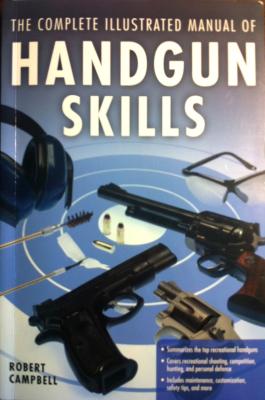
|
The Complete Illustrated Manual of Handgun SkillsPublished:
The title of this book is somewhat misleading. Very little of it has to do with “handgun skills,” with that taken to mean skill with a handgun. A look at the cover indicates this, showing a target, shooting glasses, and three pistols, but also a couple of cartridges, ear protectors and cleaning materials. It's really a personal look at handguns, attempting to cover all of the bases and not delving too deeply into any of them. The author, Robert Campbell, is obviously very taken with handguns and has been for quite some time. He professes interest from an early age, some experience with law enforcement, and a definite bias toward his own handgun preferences. For example, in the Preface he states, "Some of the young lions have succumbed to commercialism and opted for small bores… more |
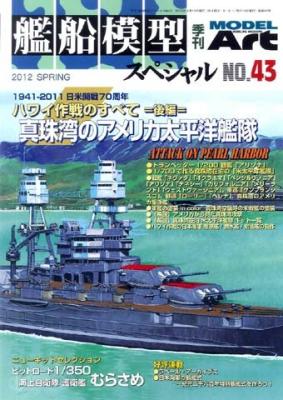
|
Model Art Modeling Magazine, #43, Seventieth Anniversary of Pearl HarborPublished:
This large format publication on fine, heavy paper is almost entirely written in Japanese. It contains articles on ships present at Pearl Harbor on December 7, 1941, both Japanese and American, but primarily American battleships. The articles, which I am unable to read, focus on models of these ships, both in plastic and in resin. Even so, the photographs of the finished models, along with many photographs of the model builds in progress, are fascinating and I found that I really did not need to understand the text to get inspiration and information from this publication. The lead article, as you might suppose, is on the USS Arizona, BB-39. From the photograph of the box, it appears this is the 1:200 Scale Trumpeter kit, supplemented by a Trumpeter upgrade PE set. This… more |
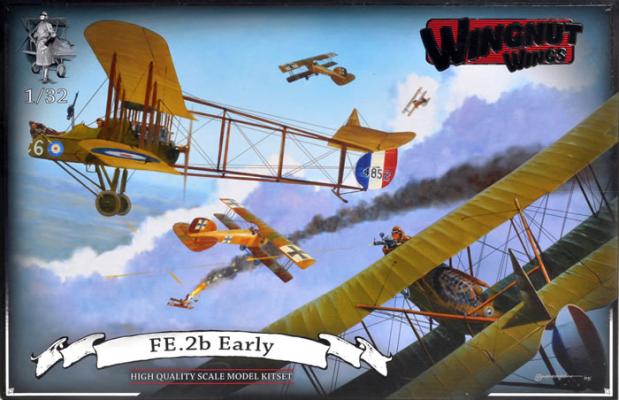
|
FE-2b early Part 2Published:
The CockpitInternal framing, fuel tanks, seat, instrument panel and fuel control panel, radiator and various pieces – is together. Even though there are a goodly number of parts, some quite small, everything fits together very well. It pays to ensure all the mould lines are off before painting. There are not many, but there are some. Also, test fit all of the parts and assemblies. Not that they don’t fit well, but to familiarize yourself with how they go together. Although the instruction book is excellent, there are a few areas that, to me at least, were not abundantly clear about exactly how things were supposed to mate up. The instruction illustration putting the long side rails around the floor, fuel tank, and radiator assembly appears to be a complex task but, once… more |
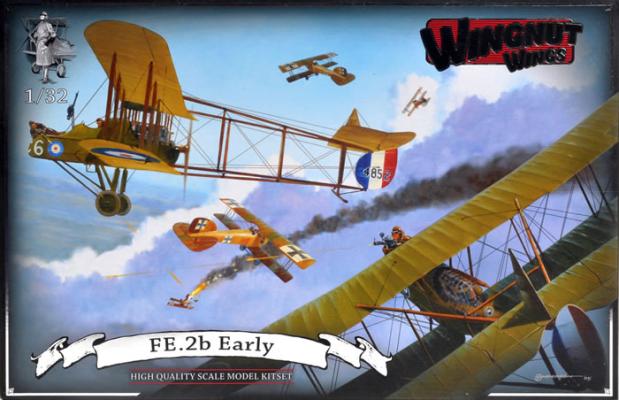
|
FE.2b (Early) Part 1Published:
The Royal Aircraft Factory Farman Experimental 2b was an update to the FE.2a “Gun Carrier” that flew in January, 1915. This basic airframe served from 1915 through the end of hostilities in November, 1918, being used as a fighter, bomber, and reconnaissance aircraft. It is one of the best pusher designs to fly in the Great War. Wingnut Wings has done the WWI aircraft modeling community a great service by producing this kit, especially in the quality molding and engineering resulting in an easy (relatively) build with excellent fit and detail. As you know, many aircraft modelers stay away from WWI models because of the rigging involved in most of them. The non-rigged or little-rigged aircraft are more popular, like the Fokker D.VII and the Dr.I. However, following some simple… more |
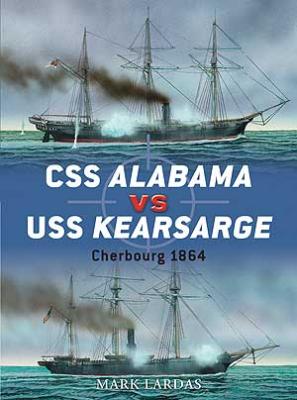
|
CSS Alabama vs. USS KearsargePublished:
As Osprey says, “This book is number 40 in Osprey’s 'Duel' series, which provides accounts of machines of war pitted against each other and the combatants who operated them.” If you are interested in the Civil War, this book is unusual in that it discusses an aspect of the ocean war that is seldom covered in any detail in most Civil War histories. This was the transition period when navies were changing from wood ships to steel and to explosive projectiles. Three single-ship actions were fought during the American Civil War between Union cruisers and Confederate raiders. This volume focuses on the most famous, that between the CSS Alabama and the USS Kearsarge in 1864 off Cherbourg. It focuses on the crew, the tactics, the commanders, and the weapons used at the time. It is… more |
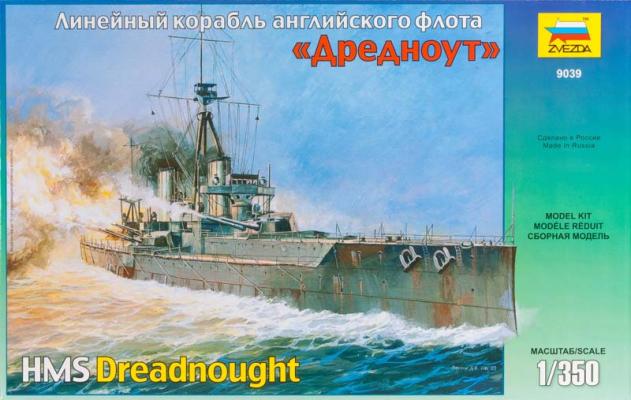
|
HMS Dreadnought, Part 3Published:
After masking the black for the boot topping, the red was masked and the upper part of the hull sprayed with Italeri acrylic gray. This was a frustrating experience. The paint will just not behave properly in my Badger double-action airbrush. I tried various thinning ratios, but was not able to hit a mix that would perform for more than five or six seconds before splattering and running, or clogging up the works. I did manage to finish painting the hull, but resolved to brush paint the remainder of the gray parts. It does brush paint much better, but do not attempt to thin it with water (as the paint label calls for). Removing the masking from the hull revealed that I am not as good at ship masking as I thought. The boot topping stripe in particular was not uniform – some of… more |
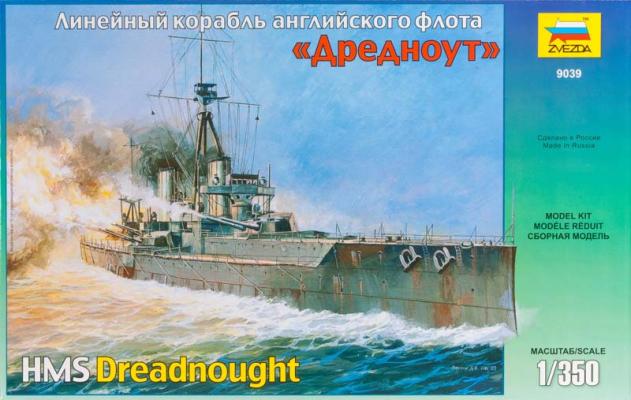
|
HMS Dreadnought, Part 2Published:
The White Ensign Models PE set finally arrived from across the pond. It is extensive and finely done, as are all WEM photo etch. The two frets contain enough extra photo etch to build various versions of the Dreadnought as she appeared throughout her service life. I am building the early version, but there are details to represent all the main versions of the ship. The WEM instructions are complete and helpful in identifying the locations of the parts on the frets and with good detail on how to bend and apply the ones you choose. I started with the 12” turrets, cutting out and installing the gun platforms and ladders for each. I found that the photo etch parts are connected to the fret with fine connecting pieces of brass that are easily cut with my scalpel blade. I set up my… more |
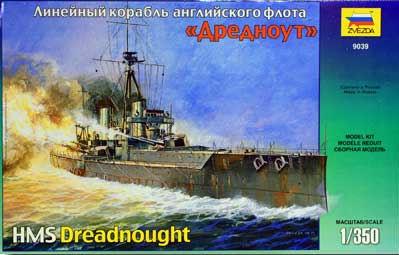
|
HMS Dreadnought, Part 1Published:
The British battleship HMS Dreadnought is widely thought to have been the first of the modern battleship designs, culminating in the Missouri class built during WWII. When the Dreadnought was launched in December, 1906, after only slightly more than a year in building – a pace unheard of prior to her building – she revolutionized battleship design and made all other existing battleships obsolete. The reasons for this were simple. She carried a massive, for the period, main armament and relied on only a single caliber, 12" 45 cal, for her main battery. Prior designs had mixed larger caliber guns which created problems when they were all firing and the fire control crews were attempting to determine which rounds to spot and adjust for more accurate fire. With only one large caliber,… more |
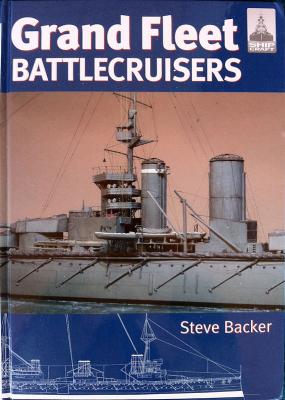
|
Grand Fleet BattlecruisersPublished:
The genesis of the modern all-gun warship occurred when Jackie Fisher, who was for a time Great Britain's First Sea Lord, serving with Winston Churchill, First Lord, during WWI, designed the first fast, big-gun battleship named HMS Dreadnought, a name subsequently given to all ships of that class. Fisher was determined that the prime characteristics of a superior warship were found in two things: speed and firepower. Consequently, this same thinking that produced the Dreadnoughts also created the first Battlecruiser, HMS Invincible, which was basically a somewhat smaller, faster ship, more lightly armored than the battleships, but almost as heavily armed. As the Dreadnoughts made all other battleships obsolete, so the Battlecruisers made all other cruisers instantly obsolete. … more |
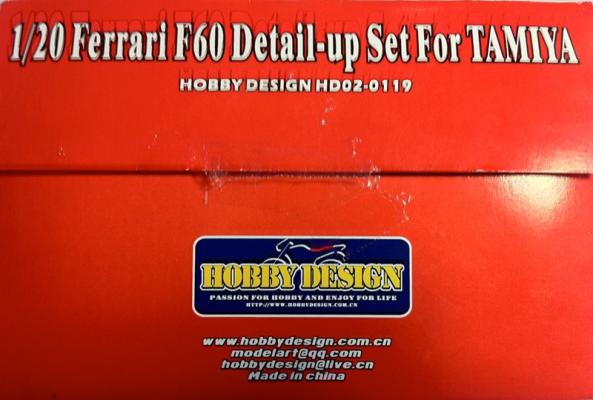
|
Ferrari F60 Detail-up SetPublished:
This detail set if for Tamiya's new F1 F60 car kit. It incorporates three frets of etched metal parts. The fret for the wing and aerodynamic body parts is relatively heavy, which should make these parts more resistant to breakage and warping as well as being more in scale. The other detail parts on the two remaining frets are of lighter material, not brass, but seem to be a light steel or perhaps aluminum alloy. As a nice touch, a Bridgestone tire painting template is included which would be useful for many other kits that do not include pre-painted Bridgestone tires. The instruction sheet is one fold out, black and white set of diagrams. There are a few "instructions" next to certain parts, e.g., "cut off"; "smoothen" (sic); etc. The drawings are all well done and clear. There… more |
